This is a transcript of Bearly Political’s most recent podcast. Listen to the full episode here.
Zachary: Like a lot of people during the pandemic, I took up a new hobby: hiking. At the time, I was living in Southern France, near these alpine foothills, and every week or so I’d trek across those Mediterranean mountaintops to pass the time. One day, I went for a long hike. As hours passed, I became tired… and hungry… and I wanted to go home. That’s when I saw this set of stairs going down the hill.
Now, usually stairs like these are shortcuts that get you somewhere closer to the city, but this stairway was strange. It was old and rusted. Some of its stair wood was rotten. When I got to the bottom, I found an old trail and, as I followed it — this path — it disintegrated into shrubs and bushes. As the path disappeared, these abandoned buildings started popping up — with cinder block walls and scrap metal roofs. It was sketchy. Really sketchy. So, I turned back. As I came back to the stairway though, I heard a sound.
Someone else was coming down. Now, this stairway was narrow, only good for one lane foot-traffic, if you know what I mean, so I waited. And waited. And waited. Then, this man came out. He was bald and wearing camouflage and pointing a gun at my face.

Zachary: My name is Zachary Hagen-Smith. This is a story about many things. Violence. Death. Racism. Nationalism. Countries on the edge. Countries off the edge. But more than anything, it’s a story about a peculiar, culinary dish that by all logic should not exist.
News excerpt: We’re talking about the first ever French taco spot. That’s right, French tacos.
Zachary: Moving to France was hard. I grew up in Los Angeles and had never lived anywhere else. I didn’t even speak French. But on the drive from the Nice-Cote d’Azur Airport to my flat, on every street corner were these snack shops with this word that, as a Californian, were words from home: Tacos.
Youtuber Mark Abbott: What?! French tacos? It exists?
Zachary: But this isn’t your typical Tex Mex fare. In the words of New Yorker journalist Lauren Collins: “French tacos are tacos like chicken fingers are fingers”.
French 24 News: The recipe is simple: flour tortilla, diced or minced meat, generous amount of fries, and to top it all off, a white creamy cheese sauce. The result is a hefty sandwich that contains over 1000 calories.

Zachary: French tacos look like these rectangular, oblong burrito thingies torched with a panini press. French tacos, “tacoSSS” plural, even when referred to singularly, are thought to come from the snack shops of Southern France’s Rhones-Alpes region (from Lyon, from Grenoble) in the early 2000s. Since then, the reign of tacos has stretched as far as the light touches. Franchises, like O’Tacos and Tacos Avenue, have extended well outside France, opening locations as far as Tangiers and Brooklyn. French tacos are slowly becoming a worldwide phenomenon.
“Bambina” by PNL (song excerpt): Opé Opé j’vendais l’coco j’graillais l’tacos/ Hombre hombre, j’fais l’tour du monde même en taocs
Zachary: Tacos are deeply enmeshed into French youth culture — into TikTok…
Seizemay TikTok: French tacos maison juste incroyable!
Zachary: … memes…rap music—
Mokobé (RTL): C’est les meilleures tacos du monde.
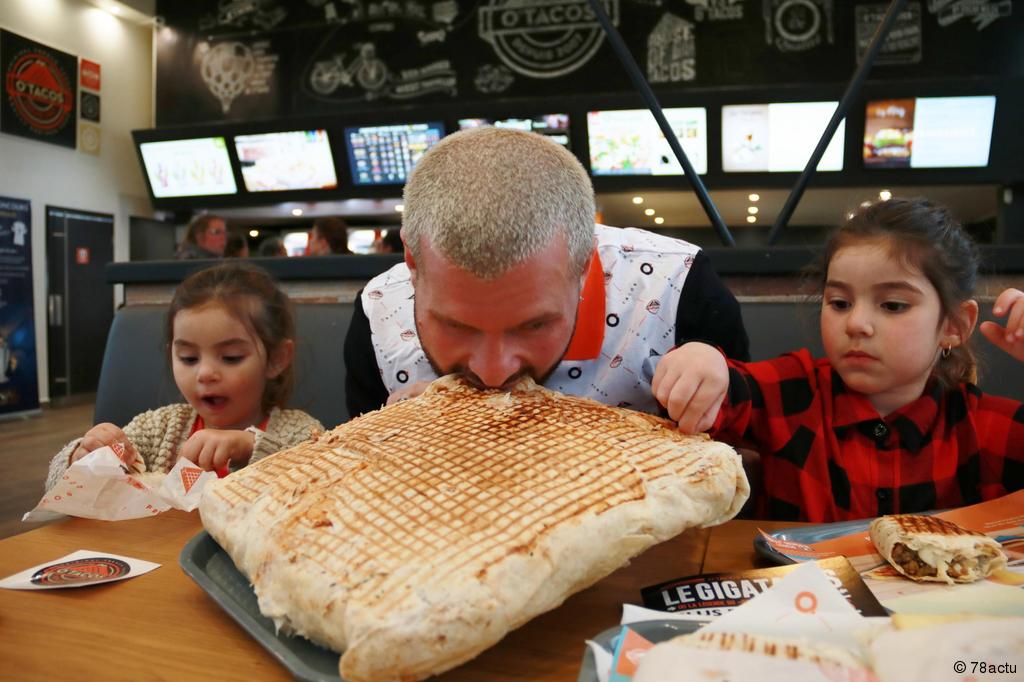
Zachary: Since Tacos are one-in-one with France’s young people, I consulted a few tacos experts.
Hugo: Hello, my name is Hugo. I’m French.
Marci: Hello, everybody, my name is Marci. I’m from Germany, but I lived in France for two years.
Luka: Hi, so my name’s Luka. I’m from France, actually especially from Réunion which is an island located east of Madagascar.
Zachary: With my expert team assembled, I had to ask: why are tacos so popular among their generation?
Hugo: Maybe more than other fast food brands, tacos often manage to have a good coverage in social media and all the media that tend to be used by young people than other ones.
Marci: I feel like, first of all, it makes sense why there’s so much demand coming from young people because young people have lower income and financial resources available.
Luka: Especially, when you’re coming back from a party. You’re hungry at 2AM, so you have a taco.
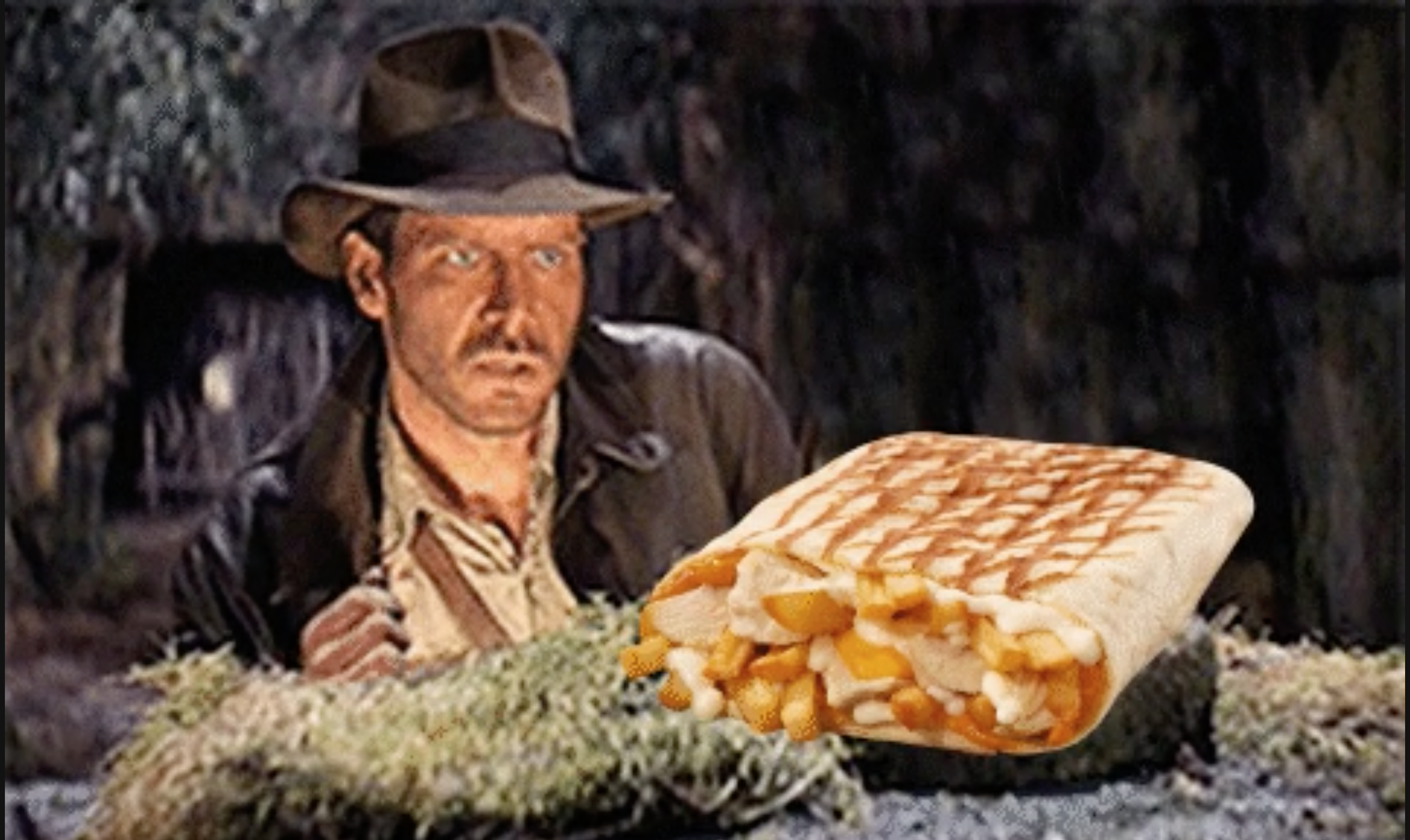
Zachary: Marketing, affordability, and, well, late-night-snacking. But to really understand the appeal of French tacos, you need to understand their roots. While they come from Grenoble or Lyon, their true origins lie across the Mediterranean.
The Wild and Beyond: Apparently the story goes that two Moroccan immigrants were in France and felt inspired by Mexican cuisine.
Tacos Origins (Pt 1): It was an improved kebab wrap for a while. More square and more compact panini style.
Lauren Collins: The recipe is inspired by a dish from the city of Setif pointing to mukhala’a, a semolina pancake often stuffed with meat, onions, bell peppers, and tomatoes that is popular in Algeria.
Zachary: Nobody for sure knows who invented the French tacos, but it’s clear that, like kebabs and couscous, they’re descended from a uniquely French fast-food form of North African and Middle Eastern street-cooking. The recipes and culinary traditions brought by these migrant communities have spread from recently settled households across the entire country. But culinary changes like this: they don’t happen overnight, folks! They all begin somewhere, and the tacos’ story began over a century ago.
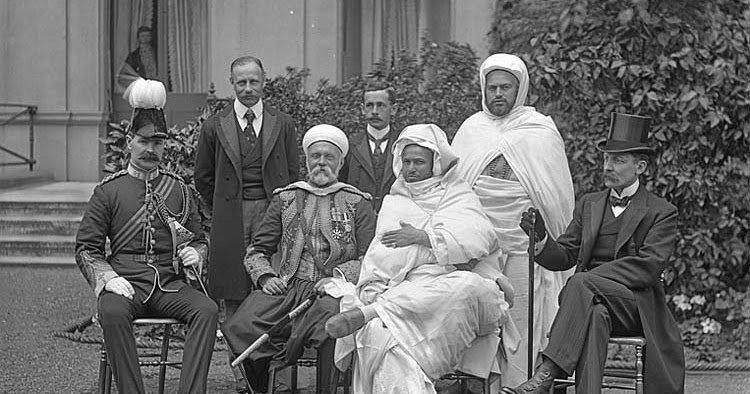
Newsreel: It’s 1912 and General Louis Hubert Gonzalve Lyautey takes command of the French foreign legion in Morocco and Algeria.
Zachary: Starting in the late 1800s, France began colonizing the Maghreb– the French term for North Africa’s three main regions: Tunisia, Algeria, and Morocco. Across the Maghreb, France introduced and expanded new technologies: railroads, telegraphs — important things. But they did so in ways that weren’t fair.
Throughout French rule, Arab people had little say in politics and were ruled by French minority governments. These legislatures’ subsequent reforms confiscated many Arab peoples’ lands and sold them to French buyers at artificially low prices. This all contributed to institutional and economic inequalities that’d make independence a lot more difficult for Maghrebi countries in the future. But that day was a long way off.
Newsreel: It was a sunny day on June 24, 1914, scheduled that day was the expected motorcade of archduke Franz Ferdinand who was heir to the Austro-Hungarian crown.
Zachary: In 1914, when World War I struck, France needed soldiers. So, they turned to the Maghreb. France’s North African territories sent hundreds of thousands of men to fight in the First World War. These Arab soldiers defended Paris from the Germans and France from invasion. But these Arab countries didn’t just provide France with troops, no, they also provided industrial manpower. By 1919, nearly 200,000 Algerians had taken up factory jobs across France.
In this period, a quarter of Paris’s population were foreigners, the majority of whom came from the Maghreb. At the same time, refugees from Turkey and Armenia were flooding into France, bringing with them a dish that’d become synonymous with Arab street-cooking — the great-granddaddy of the French tacos — the kebab.
Of course, these immigrant populations were still quite small and their restaurant-ing industries were even smaller. But that’d change after the Second World War, when France lay in ruins.
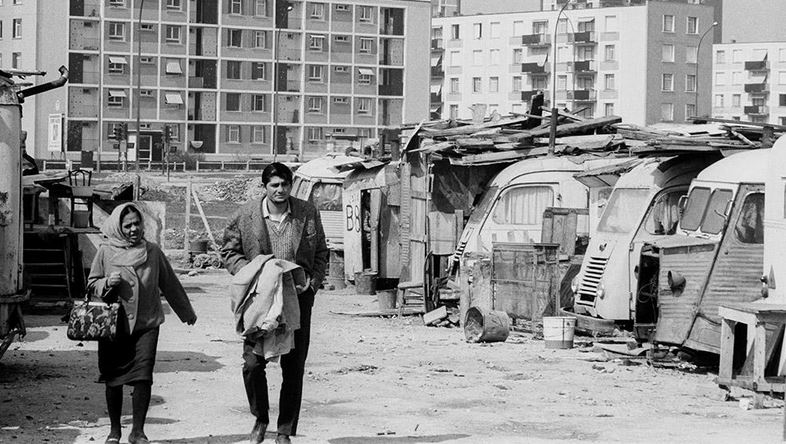
French 24 News: It was on ships like this that France’s new immigrant work force arrived to rebuild the country in the 1950s. They came to fill pressing needs in construction and manufacturing after World War II.
Zachary: Starting in the 1950s, France and other European countries encouraged emigration from the Maghreb, offering temporary migrant workers long-term residency and, with it, an easy path to citizenship. Newly independent Morocco and Tunisia likewise encouraged European emigration as a way to relieve their own countries’ chronic unemployment and, also, to secure financial remittance transfers from their workers abroad.
French Algeria had a more complicated situation. Native Algerians and French settlers were engaged in a violent, gruesome war. Many Algerians, both of European and Arab descent, moved to France as refugees. While these immigrants’ experiences differed, they all share one thing in common: when they moved to France, they brought their recipes.
“Fais-moi du couscous, chéri” by Bob Azzam (song excerpt): Fais-moi du couscous, chéri, fais-moi du couscous! Fais-moi du couscous, chéri, fais-moi du couscous!
Zachary: By the 1970s, immigrant food products, like Maghrebi couscous and later the Turkish kebab had entered the French marketplace. But the way companies marketed this food was often less about the food itself, and more about where it came from.
Publicité Couscous Garbit: C’est legume! Mmm…comme d’habitude: Couscous Garbit.
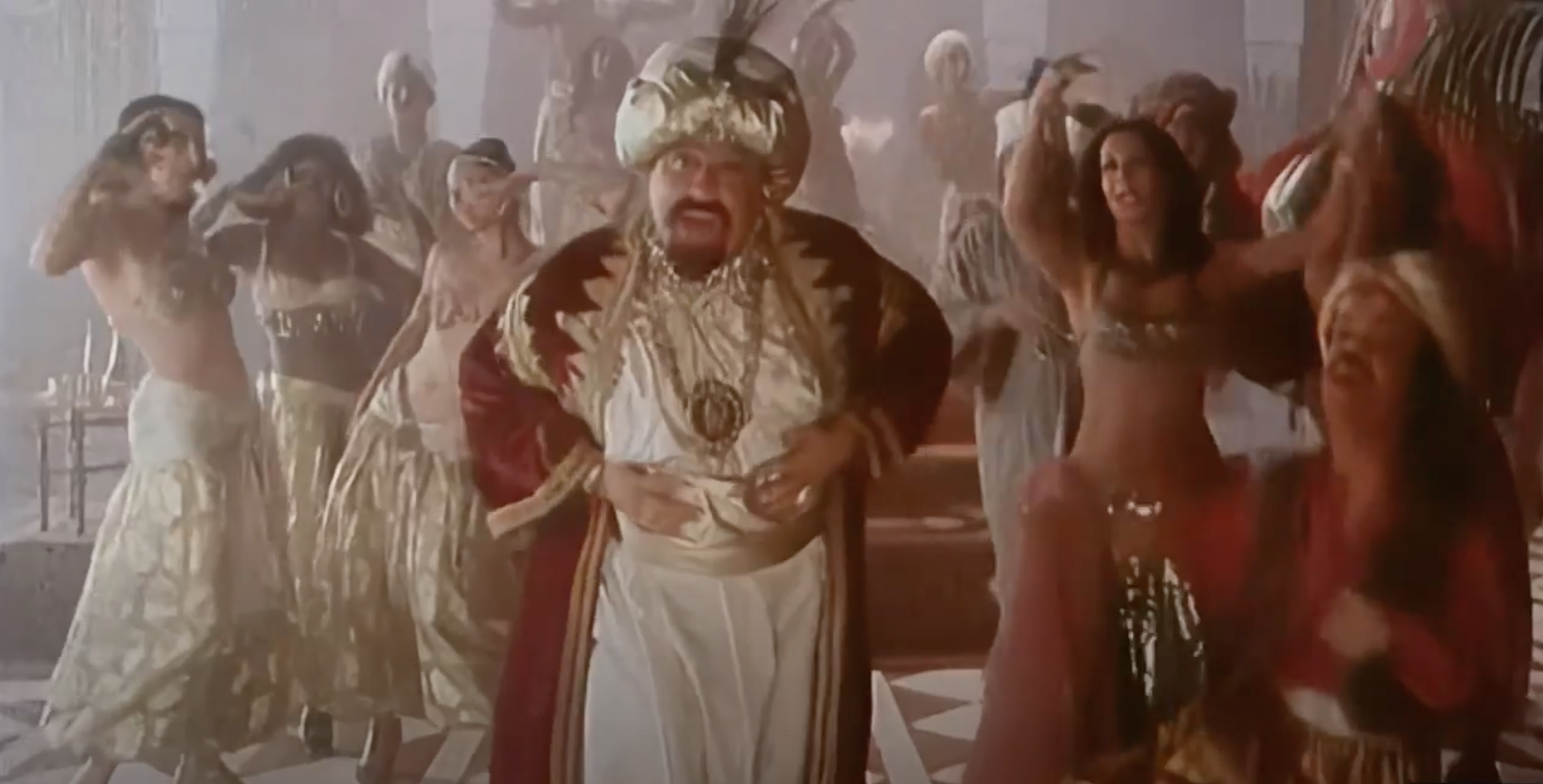
Zachary: During the colonial age, France sought to civilize Arab culture, but by the 1980s, France prefered to bottle and sell it. Food companies weren’t just selling food, but, in the words of a paper published by the University of Illinois at Urbana-Champaign, they were selling “the seemingly timeless and primitive cultures of the non-Western world.” This approach is of course paternalistic and, to use the language of philosopher Edward Said, orientalist. As one of my very own tacos experts remarked:
Marci: I feel like there’s a lot more appreciation in Western Europe for like local foods, for example like French food, like good fish, and in Germany like a schnitzel than there is for food that comes from other places outside Western Europe.
Zachary: While that’s somewhat true today, it was overwhelmingly true 40 years ago, which was a problem. Creating national cuisines is important for immigrants seeking to define their identity and place in any society, especially such a gastronomically focused one as France. So, how do you teach a country to take North African food seriously? You get a North African to teach them.
And for France, her name was Fatema Hal.
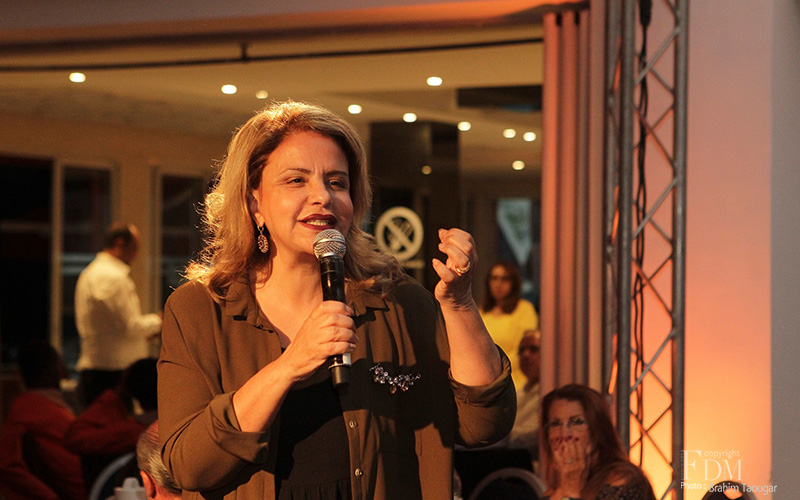
Zachary: Born in Morocco, she immigrated to France in the late 1960s for an arranged marriage, but quickly divorced her husband after enrolling in university. Following college, where Hal studied ethnography, she bounced around various political advocacy jobs, but she was never satisfied. So, in 1984, she started a Moroccan restaurant in the heart of Paris called Mansouria.
Destination Goûts: For 15 years, Fatema Hal has managed this Moroccan restaurant in the heart of Paris.
Zahary: Hal soon gained minor fame, publishing detailed cookbooks not only on Maghrebi recipes, but on the history of Maghrebi cuisine. In the words of The Ethnic Paris Cookbook by Charlotte Puckette and Olivia Kiang-Snaije, Hal is “the queen of Moroccan cooking.”
Hal is unique because her success is based not on compromising the authenticity of Maghrebi foods by modifying them to fit French tastes, but on staying true to her roots. Today, couscous is one of the most popular dishes in France.
But the story of French tacos is complicated by another factor.
French 24 News: Jack Bourrel opened the very first fast-food restaurant in 1961 in the heart of Paris, a franchise of the American chain Wimpy… 11 years later, another Frenchman tried his luck. Ramon Dion opened the first franchise of the American giant McDonalds in the Paris region.
Zachary: In the 1970s, American fast-food companies began to flood France. McDonalds. Burger King. KFC. But companies weren’t willing to open franchises in the oft-neglected French suburbs. The banlieues.
These low-income areas are disproportionately populated by people with immigrant backgrounds. With no fast food coming to serve the banlieues, the banlieues served themselves. A new genre of restaurants emerged: snacks. They served kebabs and burgers and couscous. And it was in these snacks that French tacos were invented.
In this sense, tacos reflect a very unique French immigrant experience. While couscous comes from the Maghreb and kebabs from Turkey, tacos are French. They’re the product of Moroccans and Tunisians and Algerians, but they aren’t any of those things individually; they’re all of them at once — they’re French.
But for some people in France, that is a problem. A problem that lies at the core of their country and, potentially, at its end.
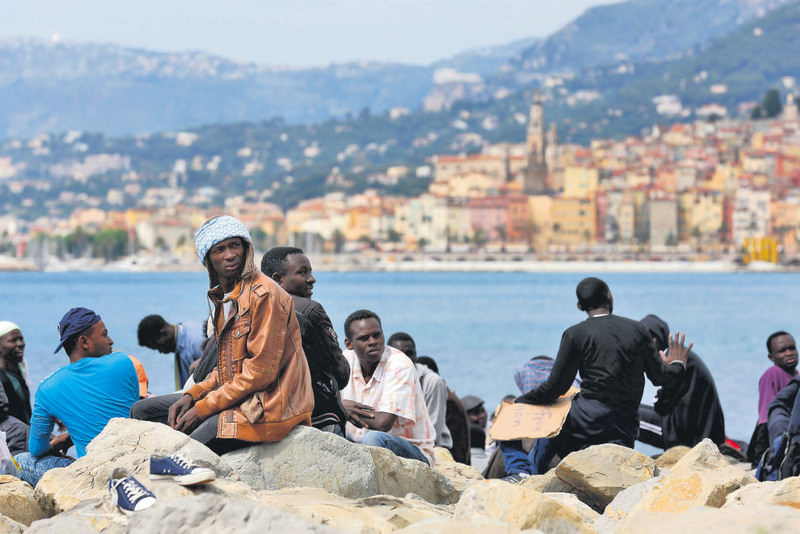
Zachary: Menton, this French-Italian border town I lived in during the pandemic, stood at the center of a massive migration crisis. Geographically, Italy is an optimal location for African migrants coming to Europe. Per European Union law, when these immigrants arrive they are granted asylum. But just for Italy, not for anywhere else in Europe.
The thing is, for a lot of these migrants, Italy is a pathway not a destination. They want to go to France or England. And those who want to, have to get through Menton’s border. Because of this, the French-Italian border is one of the most heavily policed borders in Europe.
I never expected to be on the receiving end of that policing, but as soon as that French soldier pointed the gun at me, I was.
The soldier walked me up the stairs point blank, hand’s up, and when I got to the top, there were six or seven soldiers there. They had a dog smell me and started asking these questions. A lot of them were these very French insults like, “You’re hiking, in that outfit?” But they also asked for my passport, which I didn’t have on me.
So, they took me in their car to a detention center on the Italian border. When I got there, there were all these legitimate refugees, people from Myanmar and South Sudan, people actually fleeing genocide and poverty, and then there I was.
They eventually let me go, but it was scary. To have that immediate scrutiny on you just because you’re different, that’s a lot. It gives the impression like there’s just not a place for you. No place at all.
In the 1950s, immigration to France was virtually unrestricted. But today, France treats their border with Italy like a war zone. So, what happened?
Georges Pompidou: The problem is the fact that North Africans, in particular the Algerians, are content in a few clusters. Marseille is a banlieue, the banlieue of Lyon, the banlieue of Paris.
Zachary: In 1972, French President Georges Pompidou issued two administrative memoranda, collectively known as the Marcellin-Fontanet circulars, targeting North African migrant workers. The first memoranda put an end to a practice called “regularization” where undocumented workers came to France, found employment, and THEN filed their necessary paperwork. The second memoranda mandated that immigrants gain commitment from an employer prior to arriving in France. Pompidou’s measures fit with a broader shift in European migration policy at the time.
1970s British interviewees: “Well of course there are too many immigrants in this country.”
“We do not have sufficient jobs and housing for our own people, let alone immigrants.”
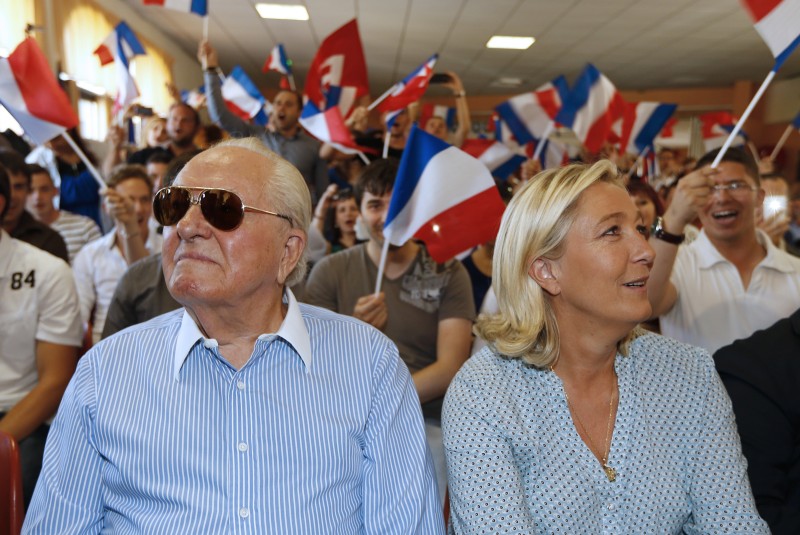
Zachary: In the wake of the oil crisis and economic downturn, many European countries cut immigration and scapegoated immigrants for economic problems that the immigrants actually had little to do with. In France, though, some people went further.
Jean-Marie Le Pen: Le Pen. In France, we don’t talk about immigration. The word is taboo.
Zachary: From 1972 to 2015, Jean-Marie Le Pen led France’s National Front party with the idea that immigration ought to be tougher, even for immigrants already in France.
Le Pen is a controversial figure to say the least. He’s thought to have committed war crimes in Algeria, and has been fined by the French government for hate speech against Muslims. He also flirts with Holocaust denial. But in 2002, he shocked the country and made it to the runoffs of France’s two-round presidential election.
Crowd (chanting): Le Pen Président! Le Pen Président! Le Pen Président!
Zachary: He lost the election by a landslide, but it signaled that these previously taboo race-baiting issues were mineable for political points. So, what do you think happened next?
FN rally 2010: Ni kebab, ni burger, vire le jambonbeurre! Ni kebab, ni Burger, vire le jambonbeurre!
Zachary: In 2010, members of Le Pen’s national front at their party convention united under the cry: Not the kebab. Not the burger. Long live the ham and butter baguette.
Robert Ménard, Mayor of Béziers: I feel that more than enough kebabs is more than enough.
Zachary: In 2015, the National Front mayor of the Southern town Béziers declared war on kebab shops and started limiting their numbers.
Éric Zemmour: In France, immigrants haven’t been put in ghettos, but, coming in increasing numbers, they’re imposing their way of life. There have been more and more kebabs, halal butcheries, veiled women.
Zachary: At a recent Q&A, 2022 Presidential candidate Éric Zemmour declared that immigrants are imposing their way of life on French people. Too many kebabs, too many halal butcheries, too many tacos. The new villain of the French far right: food.
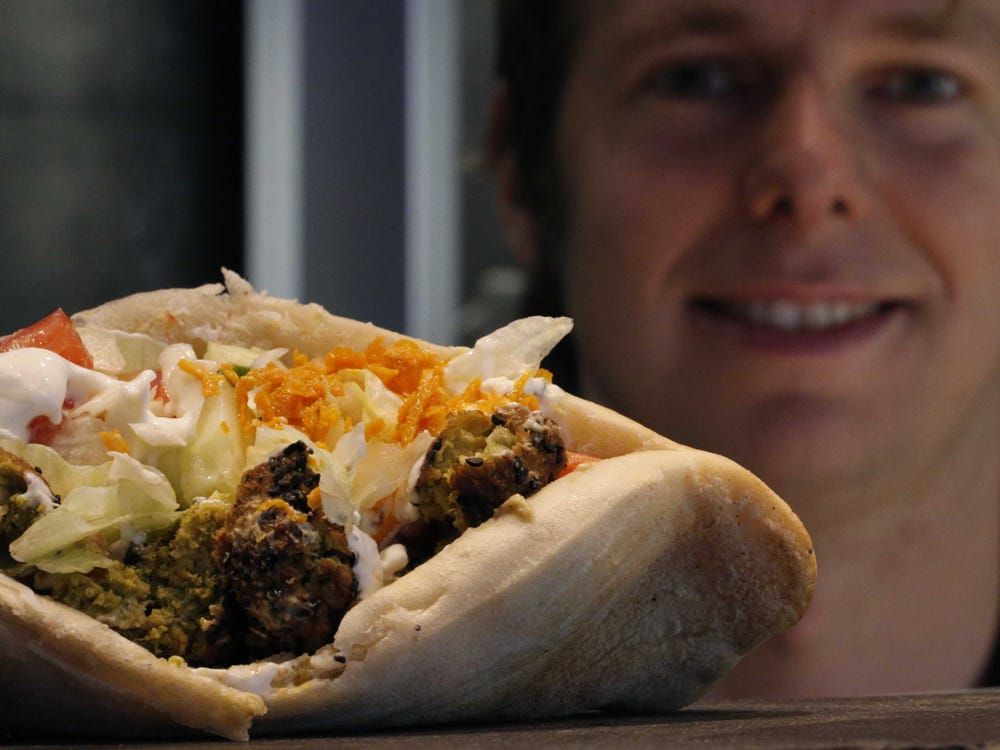
Luka: I can understand like “oh yeah we want people to integrate into French culture” but are you gonna prevent people from expressing their own culture? Like having things from other countries, like are we placing a cap on Italian restaurants, for example? What does it mean for example to place a limit on kebabs and not British restaurants? So, you’re making a distinction between different types of people.
Zachary: Most of the time, no one goes out and says, “we’re banning snacks and kebab shops because we don’t like Arabs,” but the underlying message is evident. The people that support banning kebabs never dream of the same policies against pizzerias or sushi restaurants. They don’t like Arabs. But their line of rhetoric doesn’t come from nowhere, it relies on a certain set of French social structures.
Hugo: One of the first lines that Zemmour says that’s quite interesting is that “in France I don’t know any minorities I just know citizens that are part of the national community.” It sounds very problematic when Zemmour says it, but it’s an extreme caricature of the French republican project.
Zachary: The French constitution says that France is indivisible, you can’t divide it into different communities. What makes France stick together is what French people have in common, namely its three founding principles: liberty, equality, and fraternity.
The goal of France’s republican project is to create a common community to cultivate these values, no matter your background — ethnic, racial, religious — whatever. Where America sees itself as a melting pot, in France, everybody melts into the pot. In theory, both America and France’s view of citizenship have similar end goals, but they’re easy to misconstrue.
Hugo: That’s where Zemmour, in my opinion, steps out of the republican project. He says that you cannot have your own particular background living on the side. He’s saying that you have to be part of that community all the time. Whereas the real republican project in my opinion, is to be able to cultivate in the common space — places like school, public administration — what keeps us together.

Zachary: So, the culinary culture wars?
Marci: It’s utter, utter bullshit in a sense, because kebab shops are only going to work if people want them.
Hugo: For me, this culture war is wanted for the far right because it’s the only real field on which it can prosper. They are not credible enough in France, and they don’t have the historical backing to have a proper standing as a real party focused on something other than identity politics.
Luka: I don’t think it’s a problem, personally. Even my ancestors a long time ago were also immigrants. So, I think you just go to a place and bring some part of who you are and you shape it. That’s the beauty of French immigration.
Zachary: The fact of the matter is that people like Arab food, halal food, snacks, whatever you want to call it. Whether it’s couscous or kebabs or tacos. That doesn’t make you anti-French. If anything, the fact that such cultural diversity can use “French” as such a universal label makes it all the more so. France’s racial legacies, at home and abroad, are rife with prejudice and discrimination, but in the country’s culinary scene there is hope that a better future is within reach.
So, the verdict is in, French tacos are great. Isn’t that right tacos experts?
Hugo: I honestly don’t eat tacos, man. Those really are not worth it, like you can find better, especially if you’re in France
Marci: Absolutely disgusting, as well like it seems extremely low-quality food.
Luka: I don’t think it’s like great quality, not great for your health.
Zachary: I need to confess something. When I lived in France, I tried French tacos, and they are, without a doubt, one of the worst things to ever enter my mouth. They’re gross. They’re disgusting. They’re horrific. French tacos have no justification or reason or qualification to exist. But the fact that, despite every odd, these tacos do exist and that their existence looms larger and larger every year, every month, every minute — well, that’s almost inspiring. If the universe has a place for French tacos, the most unlikely and unreasonable of foods, then it must have a place for us all.
Featured Image Source: Vox
The audio version of this transcript contains the songs “Mr. Fox in the Fields” by Alexandre Desplat and “Raining Tacos” by Parry Gripp & BooneBum
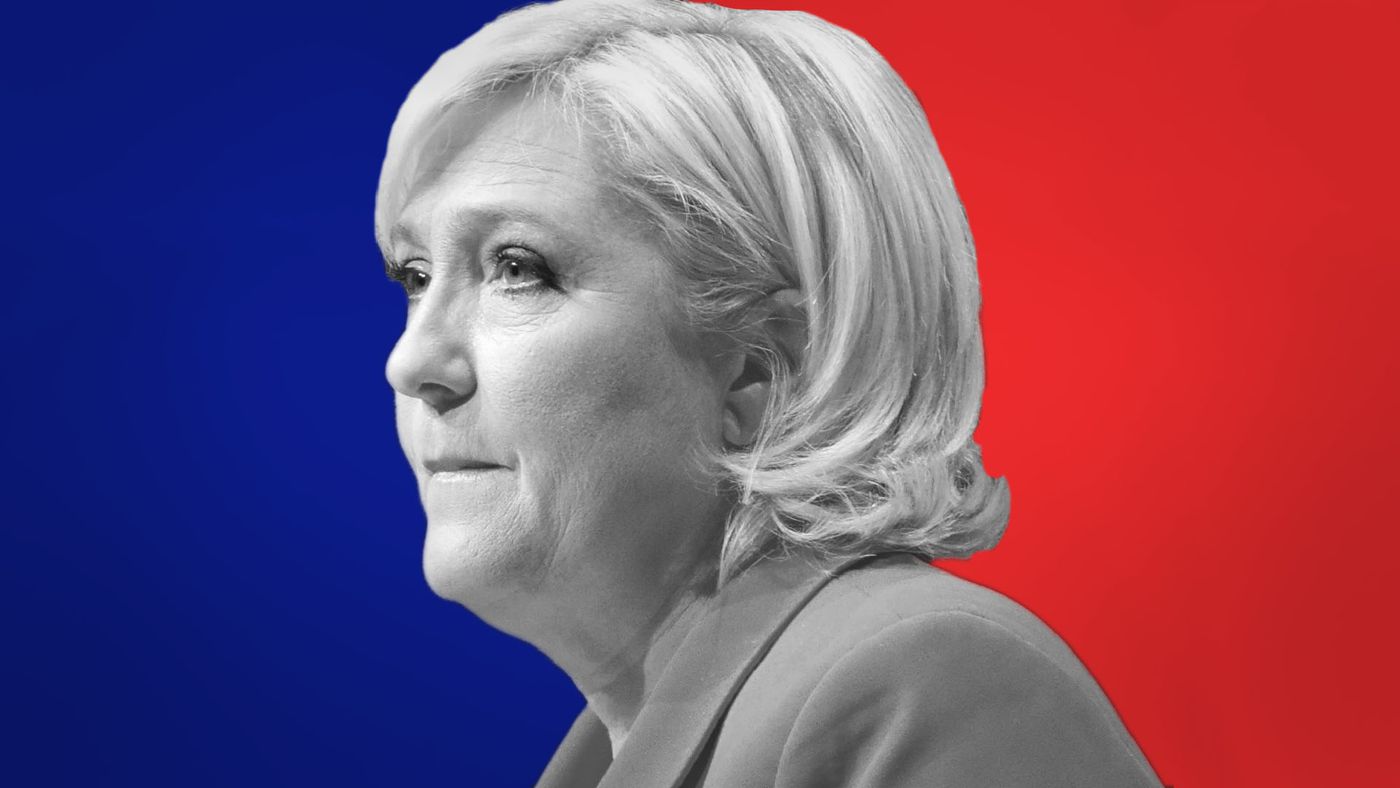






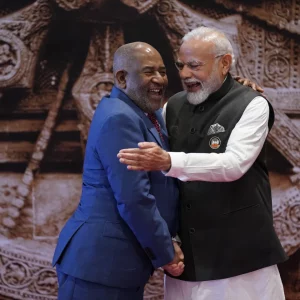


Comments are closed.